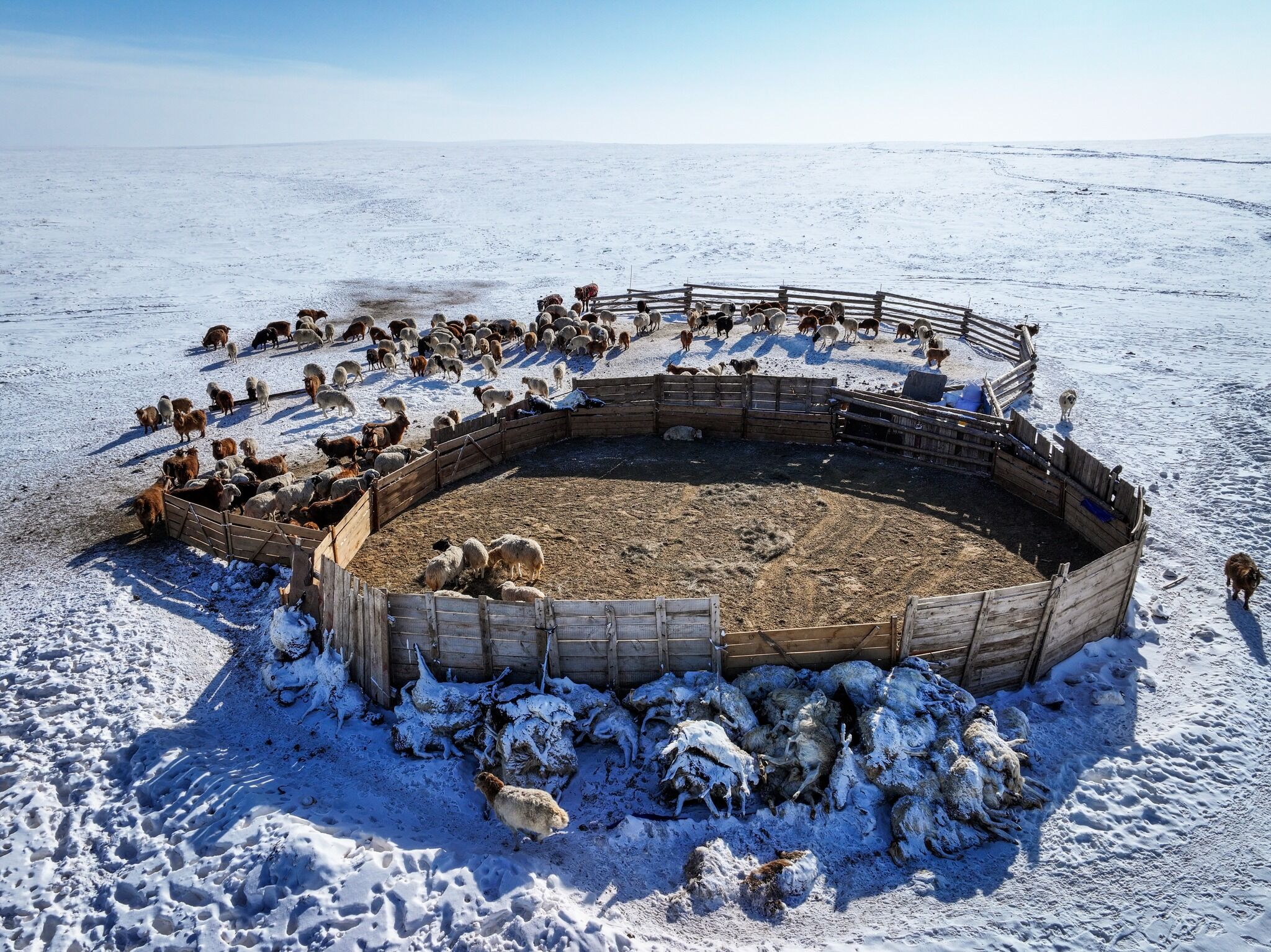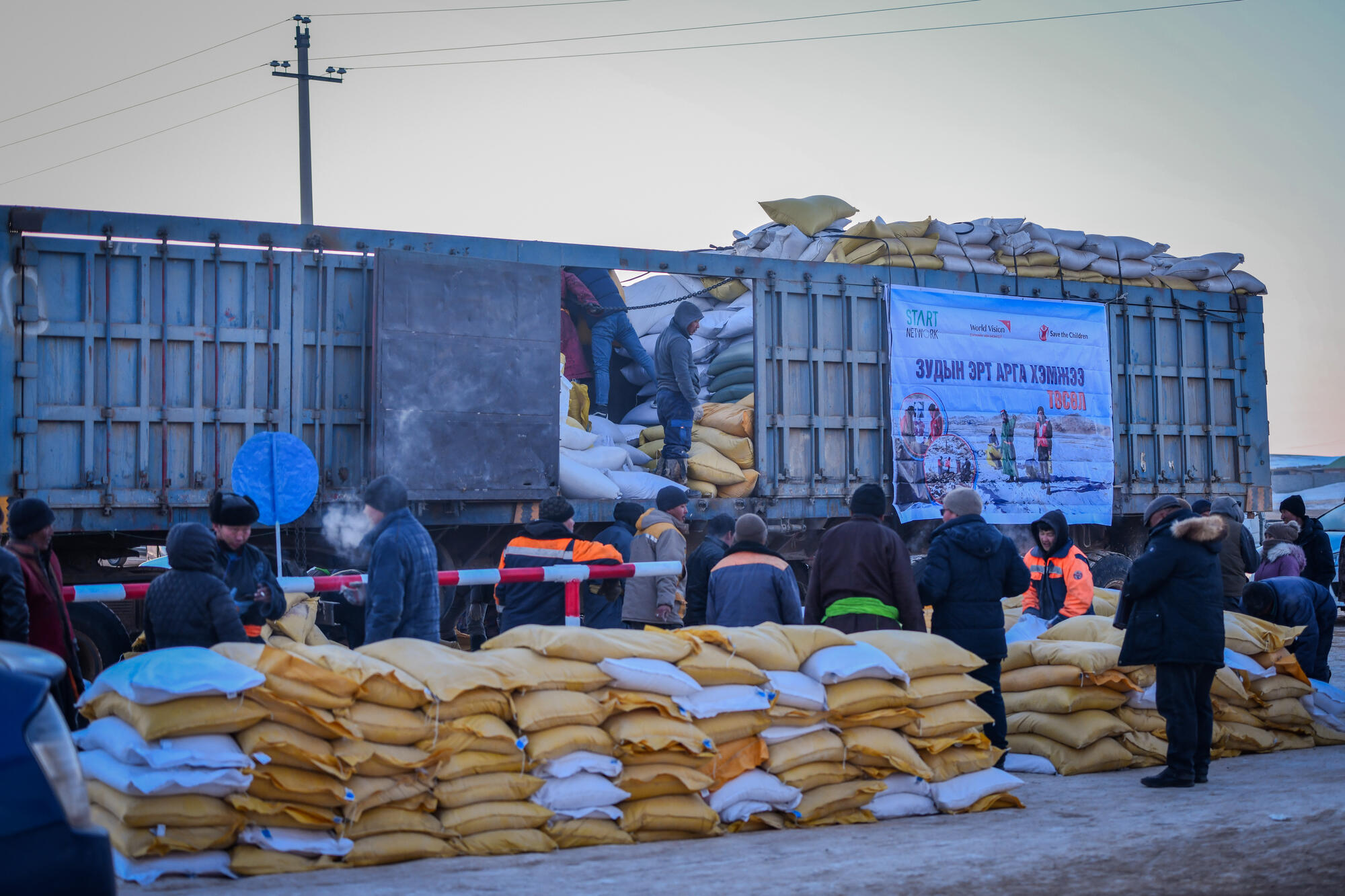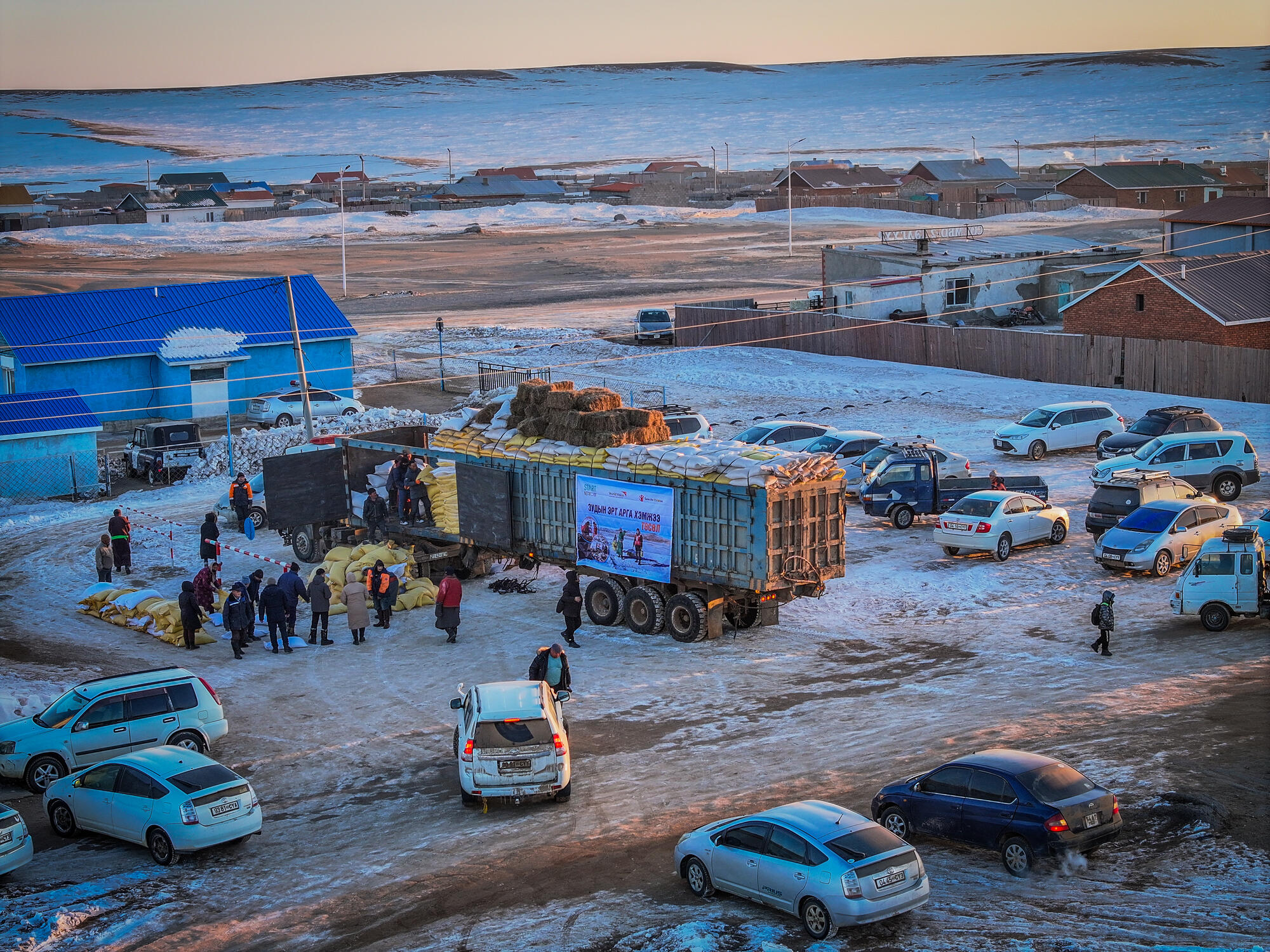A harrowing tale of survival in Mongolia

Mongolia is highly vulnerable to severe winter conditions and cold waves, known locally as ‘Dzud’. This condition has been made worse over the years due to climate change. The well-being of vulnerable children in the affected areas is at increased risk during the peak of the winter season (December to March). The Mongolia Meteorological Agency declared an early warning for Dzud on 20 December 2023. About 90% of the total Mongolian territory is at high to very high risk of Ddzud (57% very high, 23% high). The remaining 10% is at moderate risk.
When comparing the current livestock mortality rate to that of the previous year, it is evident that this year's situation is worsening. By early March 2024, over 3.9 million heads of livestock had died since the start of winter, while the figure was already at a whopping 2.9 million by May 2023. Projections suggest a further surge in livestock mortality rates due to the extended period in which the livestock struggle to access sufficient biomass. This harrowing situation, exacerbated by the highest snowfall in 49 years, covering 90% of the country up to a meter thick, has disrupted travel, trade, and school operations, severely impacting health services in rural areas. The consequences extend to health, livelihoods, and household economy, particularly among rural populations who are heavily reliant on animal rearing. Blocked roads impede herder communities' access to vital services. Frozen heating systems have forced school closures, interrupting children's education and leaving them in need of psychological support.



World Vision Mongolia is on the ground responding to the urgent needs of the Dzud-affected population through our Anticipatory Action initiative in 16 western provinces and 2 semi-urban districts. We have provided life-saving relief assistance, including food, livestock fodder and hay, and unconditional cash assistance to above 5,892 vulnerable herder families who have been severely impacted by Dzud to help at-risk children and families get through this winter.



